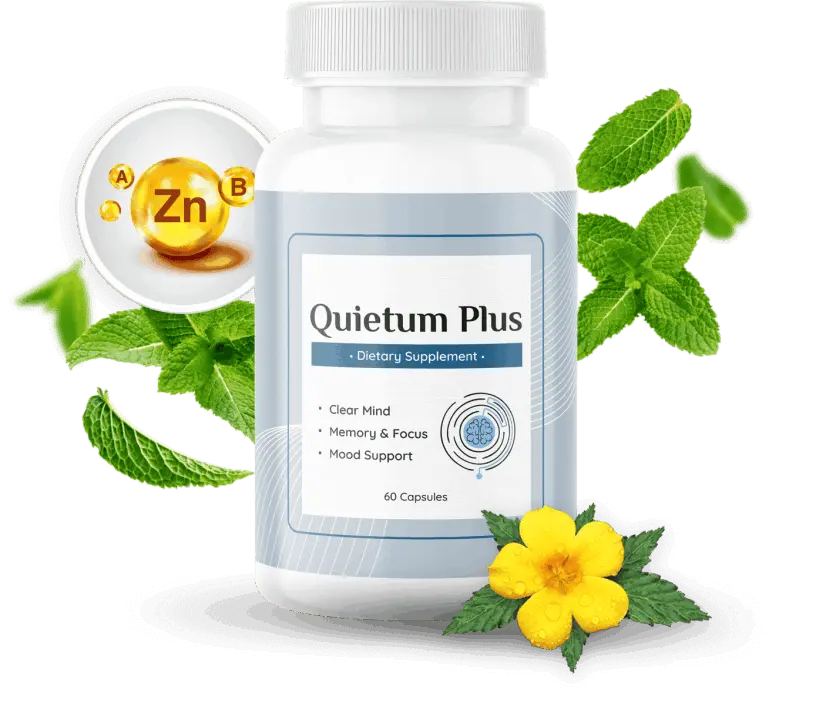There are several supplements that can help manage tinnitus by addressing the underlying causes, such as poor circulation, inflammation, or nerve damage. Let’s explore some of the most effective options and how they work.
1. Ginkgo Biloba
Ginkgo biloba is one of the most widely studied supplements for tinnitus relief. This ancient herb is known for improving blood circulation, particularly to the brain and inner ear. Since poor blood flow can be a contributing factor to tinnitus, ginkgo biloba’s ability to increase circulation may help reduce the intensity of ringing in the ears.
How It Works: Ginkgo biloba improves blood flow to the ears and brain, which can help alleviate tinnitus caused by circulatory problems.
Scientific Evidence: A study published in the International Journal of Otolaryngology found that ginkgo biloba significantly improved symptoms of tinnitus in participants who took it for 12 weeks.
Recommended Dosage: 120-240 mg of standardized ginkgo biloba extract daily.
2. Zinc
Zinc is an essential mineral that plays a key role in maintaining the health of the auditory system. Zinc deficiency has been linked to hearing loss and tinnitus, especially in older adults. Research suggests that supplementing with zinc may help reduce tinnitus symptoms, particularly in those who are deficient in the mineral.
How It Works: Zinc supports the immune system and helps protect the inner ear from damage that can contribute to tinnitus.
Scientific Evidence: A study published in the American Journal of Otolaryngology found that individuals with tinnitus who took 50 mg of zinc daily for three months experienced significant improvements in their symptoms.
Recommended Dosage: 15-50 mg of zinc daily, depending on your current zinc levels and dietary intake.
3. Magnesium
Magnesium is an essential mineral that supports nerve function and circulation. It has been shown to have a protective effect against noise-induced hearing loss, a common cause of tinnitus. Magnesium helps to relax blood vessels, which can improve circulation to the inner ear and reduce tinnitus caused by vascular issues.
How It Works: Magnesium improves blood flow to the ears and supports nerve health, which can reduce the severity of tinnitus.
Scientific Evidence: Research published in The Journal of Clinical Investigation found that magnesium deficiency can exacerbate tinnitus, and supplementing with magnesium may help reduce symptoms.
Recommended Dosage: 250-500 mg of magnesium daily.
4. Vitamin B12
Vitamin B12 deficiency is another common factor linked to tinnitus, particularly in older adults. B12 is vital for maintaining healthy nerve cells, including those in the auditory pathways. When the body lacks sufficient B12, it can lead to damage in the auditory nerves, which may result in tinnitus.
How It Works: Vitamin B12 supports nerve function and protects the auditory nerves from damage that can cause tinnitus.
Scientific Evidence: A study published in The American Journal of Otolaryngology found that individuals with tinnitus and B12 deficiency experienced relief after supplementing with B12 for six weeks.
Recommended Dosage: 1,000 mcg of vitamin B12 daily, preferably in methylcobalamin form for better absorption.
5. Alpha-Lipoic Acid (ALA)
Alpha-lipoic acid is a powerful antioxidant that helps protect cells from oxidative stress. Since oxidative damage to the inner ear is thought to contribute to tinnitus, supplementing with antioxidants like ALA may help alleviate symptoms. ALA also helps improve mitochondrial function, which is crucial for healthy cell activity in the auditory system.
How It Works: ALA reduces oxidative stress and improves mitochondrial function, which can help protect the auditory system from damage.
Scientific Evidence: A study published in Otolaryngology-Head and Neck Surgery found that patients with tinnitus experienced a reduction in symptoms after taking alpha-lipoic acid for 12 weeks.
Recommended Dosage: 300-600 mg of alpha-lipoic acid daily.
6. Melatonin
Melatonin, commonly used as a sleep aid, has also been shown to provide relief for tinnitus. Since many people with tinnitus experience difficulty sleeping, melatonin’s ability to promote better sleep can indirectly reduce the impact of tinnitus. Additionally, melatonin has antioxidant properties that may protect the inner ear from damage.
How It Works: Melatonin helps improve sleep quality and may reduce oxidative stress in the auditory system.
Scientific Evidence: A study published in The Annals of Otology, Rhinology & Laryngology found that melatonin supplementation significantly improved sleep and reduced tinnitus severity in patients with chronic tinnitus.
Recommended Dosage: 3 mg of melatonin before bedtime.





